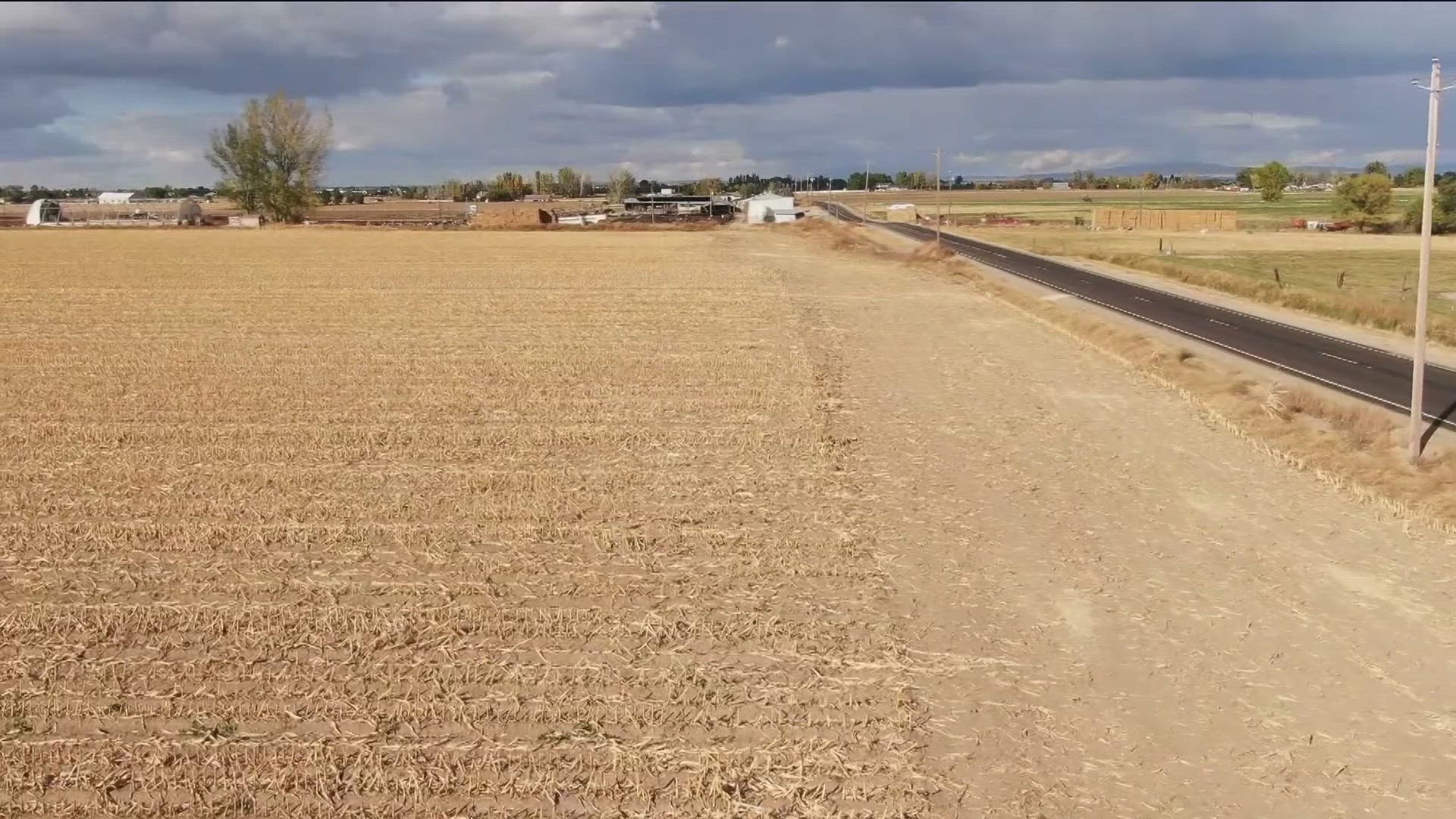BOISE, Idaho — While this brutal cold we've been experiencing is about to come to an end, it's impacted plants and animals in the area. As with many nuanced topics, this cold snap has its pros and cons.
Temperatures the Treasure Valley has seen could mean we see fewer insects in future months, but, Boise State's Dr. Ian Robertson, who studies insects, said this cold snap likely won't be long enough to make a significant difference.
"What we're experiencing now is within the range of temperatures insects often face. Keep in mind that many of the species we have here are found further north are found at higher altitudes. So it's not all that unusual," Dr. Robertson said.
He continued and said many of these insects are in the ground during this time of year. And right now, the thick layer of snow actually insulates the insects, providing a buffer against the harsh temperatures.
Dr. Robertson explained that if the cold weather lasts for weeks instead of just days, it can gradually weaken an insect's ability to withstand freezing temperatures, leading to a die-off. Another factor that can contribute to this is the timing of the cold weather.
"It's probably more important in terms of when these types of events occur. So if they were to occur early in the fall before the insects were ready to hunker down for the winter, that could really have an effect. Or if it happened in the spring, when everything was sort of on target for emergence, and then it got very cold, that could cause a big die-off. But this time of year, I'm expecting that the insects can handle it," elaborated Dr. Robertson.
Even in extremely prolonged events, Dr. Robertson said survival depends on factors from the previous season.
"Were they well nourished with high-fat reserves? Things like that. Now, when it gets really, really cold, insects have a limited ability to keep their bodies above the freezing point they can, they have chemicals, that glycerol that lowers their freezing temperature, so that they can go subzero at least zero Celsius and survive," Dr. Robertson said.
However, not all insects are underground this time of year.
"Certainly honeybee colonies, if they're feral, that is, they're not being looked after. They do experience quite severe mortality over winter in conditions like this would exacerbate that in terms of apiaries. And if they're protected, that might help them," added Dr. Robertson.
A few other local farmers and people who run orchards said certain crops need below-freezing temperatures in order to thrive. Brad Holmes from Flivver Farms in Caldwell says this is the case for winter wheat. Lance Phillips from Gem Orchards in Emmett says long, hard freezes like this do not hurt the fruit trees.
Chan Cabalo, his wife Cathy, and their family operate Cabalo's Orchard in Kuna. Cabalo says he'll be watching the water supply closely for the growing season ahead.
"Basically, it all depends on whether we have water, we are in a high desert area, if we have plenty of water, then everything should be fine. The biggest thing is when we get those extended periods of heat," said Cabalo.
Cabalo explained that two years ago, they lost a crop because it was so hot. An insect that usually stays in the desert where the sagebrush is, had nothing to forage on and ate their crop instead.
"As far as farming goes, really, you try to plan as best as you can. So that's why farmers watch the weather so much. That's why they're concerned about our snowpack. So we do have the water for the crops in the summertime, we will be able to extend that into the fall season," Cabalo said.
Watch more Local News:
See the latest news from around the Treasure Valley and the Gem State in our YouTube playlist:
HERE ARE MORE WAYS TO GET NEWS FROM KTVB:
Download the KTVB News Mobile App
Apple iOS: Click here to download
Google Play: Click here to download
Watch news reports for FREE on YouTube: KTVB YouTube channel
Stream Live for FREE on ROKU: Add the channel from the ROKU store or by searching 'KTVB'.
Stream Live for FREE on FIRE TV: Search ‘KTVB’ and click ‘Get’ to download.

